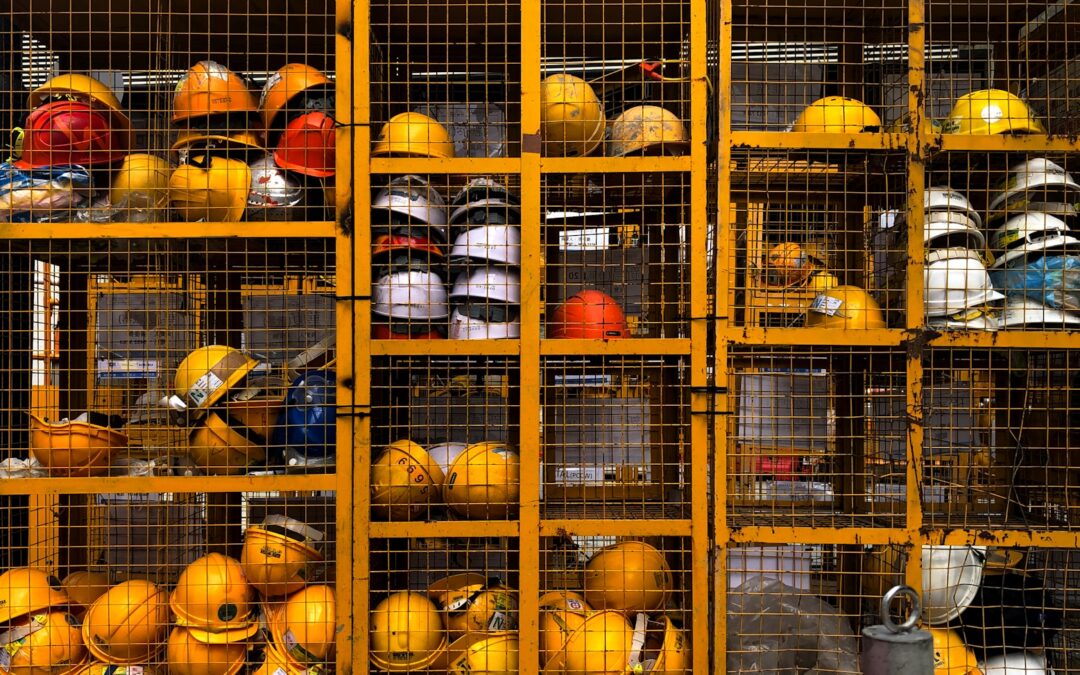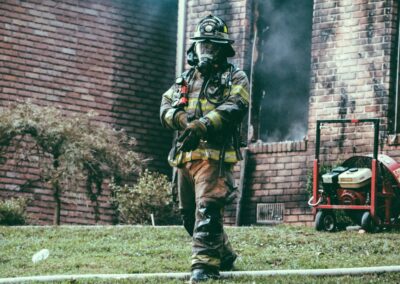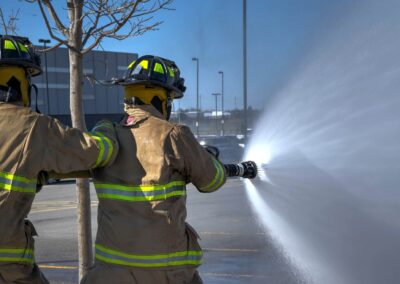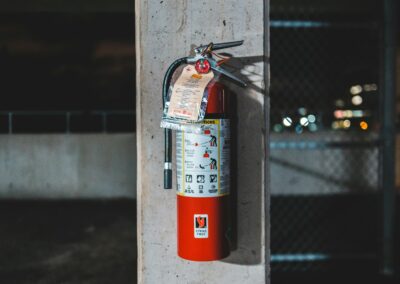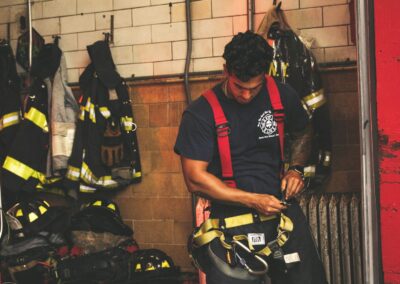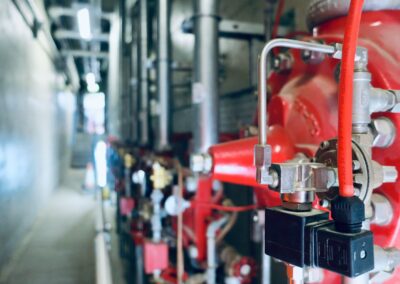Improving Reliability and Accuracy in Fire Detection
Revolutionizing Fire Detection with Artificial Intelligence
The AI in smart fire detection systems represents a significant advancement in modern technology, particularly in regions like Saudi Arabia and the UAE, where rapid development and urbanization necessitate cutting-edge safety measures. Traditional fire detection systems, which often rely on simple smoke or heat detectors, can be prone to false alarms. These false alarms not only cause unnecessary panic but also result in substantial economic costs due to the disruption of operations.
Artificial Intelligence (AI) can dramatically improve the reliability and accuracy of fire detection systems. By using advanced algorithms to analyze data from various sensors, AI can differentiate between false alarms and actual fire events. This capability is crucial in urban centers such as Riyadh and Dubai, where the high density of buildings and infrastructure requires precise and dependable fire detection systems. AI can assess patterns and anomalies in sensor data, ensuring that alarms are only triggered when there is a genuine threat.
Moreover, AI-enabled fire detection systems can continuously learn and adapt to their environment. This adaptability means that the system can become more accurate over time, reducing the frequency of false alarms even further. For business executives and mid-level managers, this reliability translates to fewer interruptions and a safer working environment, contributing to overall business success.
Integration of AI in Smart Fire Detection Systems
The integration of AI in smart fire detection systems involves the use of machine learning and data analytics to enhance the system’s ability to detect real fire incidents accurately. AI systems can process data from multiple sources, including smoke detectors, heat sensors, and even video surveillance cameras, to form a comprehensive understanding of the environment. This holistic approach ensures that the system can identify fires more quickly and accurately than traditional methods.
In advanced technological hubs like Saudi Arabia and the UAE, AI integration in fire detection systems is becoming increasingly common. These systems are designed to send real-time alerts to emergency responders, providing detailed information about the location and intensity of the fire. This rapid response capability is crucial in minimizing damage and ensuring the safety of building occupants. In cities like Riyadh and Dubai, where skyscrapers and complex infrastructures are prevalent, such advanced systems are indispensable.
Furthermore, AI can predict potential fire hazards by analyzing historical data and identifying patterns that precede fire events. This predictive capability allows for proactive measures to be taken, such as alerting maintenance teams to inspect and rectify potential issues before they escalate. This level of foresight is invaluable for business executives and entrepreneurs who prioritize safety and risk management in their operations.
Leadership and Management in Implementing AI-Driven Safety Systems
The successful implementation of AI-driven smart fire detection systems requires strong leadership and effective project management. Business executives and mid-level managers must understand the benefits and challenges associated with these advanced systems. They need to foster a culture of innovation and be open to integrating new technologies that enhance safety and operational efficiency.
Leadership skills are crucial in navigating the complexities of AI integration. This includes strategic planning, risk assessment, and ensuring that the technology aligns with the organization’s safety protocols and business objectives. Managers must also prioritize training for their teams, ensuring that staff are well-versed in using and maintaining these advanced systems. In regions like Saudi Arabia and the UAE, where technological adoption is rapid, continuous learning and adaptation are essential.
Project management skills are also vital in overseeing the deployment of AI-enabled fire detection systems. This involves coordinating with technology providers, ensuring compliance with regulatory standards, and managing the budget and timeline of the implementation process. Effective project management ensures that the integration of AI in fire detection systems is seamless and achieves the desired outcomes.
Benefits of AI-Driven Fire Detection for Business Success
The adoption of AI-driven fire detection systems can significantly contribute to business success. These systems enhance the safety and security of business premises, which is a top priority for any organization. By minimizing the risk of fire-related incidents, businesses can protect their assets, ensure the safety of their employees, and maintain uninterrupted operations.
In addition to safety benefits, AI-driven fire detection systems can also lead to cost savings. By reducing the frequency of false alarms, businesses can avoid the costs associated with unnecessary evacuations, emergency responses, and downtime. Moreover, the predictive capabilities of AI can help businesses identify and mitigate potential fire hazards before they result in costly damages.
For entrepreneurs and business leaders in Riyadh, Dubai, and other rapidly developing cities, the implementation of AI-driven fire detection systems represents a strategic investment in the future. These systems not only enhance safety but also demonstrate a commitment to leveraging modern technology to achieve operational excellence. This proactive approach to safety and innovation can strengthen the organization’s reputation and competitive edge in the market.
Conclusion: A Technological Leap Towards Safer Environments
The integration of AI in smart fire detection systems marks a significant technological leap towards creating safer and more secure environments. By leveraging the power of AI, these systems can differentiate between false alarms and actual fire events, improving reliability and accuracy. In regions like Saudi Arabia and the UAE, where technological innovation is a key priority, AI-driven fire detection systems are becoming an essential component of modern infrastructure.
Business executives, mid-level managers, and entrepreneurs must embrace these advancements and develop the necessary leadership and project management skills to successfully implement AI-driven safety systems. By doing so, they can ensure the safety of their premises, protect their assets, and contribute to overall business success. As we continue to witness rapid technological advancements, the role of AI in enhancing fire detection systems will undoubtedly become increasingly significant, paving the way for safer and more resilient communities.
—
#AIinFireDetection #SmartFireDetection #ArtificialIntelligence #FalseAlarms #FireEvents #SaudiArabia #UAE #Riyadh #Dubai #BusinessSuccess #Leadership #ProjectManagement #ModernTechnology

